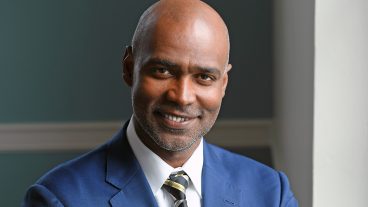A top performance psychologist, Dr. Dana Sinclair has worked with the best of the best to improve their results. From top athletes in the NFL, MLB, NBA, and NHL to Olympians, top surgeons, and prominent business leaders, she helps elite performers shift their focus to deliver optimal performance — especially when the pressure is on.
With the release of her debut book, Dialed In: Do Your Best When It Matters Most, Dana breaks down her proven action plan to help people get the best results no matter the circumstances. Her approach is simple — figure out what gets in your way, develop actions to address it in the moment, and then stick to the plan. It’s not about how you feel, Dana says, it’s about what you do.
Dana’s universal approach to optimal performance has been honed over decades of experience working with a diverse cross-section of high performers. We recently sat down with Dana to discuss her new book and the true difference makers in why some people perform better than others.
Speakers Spotlight: What spurred your interest in the psychology of performance?
Dr. Dana Sinclair: I’ve always been competitive. I played on the national field hockey team and loved playing internationally. While practice wasn’t as fun, performing at that level was. I went to school, and even though I studied agriculture for three years, it was the psychology of performance that intrigued me.
I did my PhD in sports psychology, and after realizing I couldn’t become licensed as a psychologist, I went back and got a second PhD from the University of Cambridge in experimental psychology. I returned to Canada and worked in hospitals specializing in reproductive psychology. It was through researching and counselling in that area, I learned performance matters everywhere whether its IVF, post-partum depression, sports, or business.
SpSp: How did you adapt your approach to make it universally applicable?
DS: The joy in my career has been figuring out a process that is applicable to all who are trying to be better. When I’m working with a quarterback, I’m not telling them how to read their defense, it’s about how to perform — how they can get the most out of themselves when they’re really stressed or when they really want it. This applies to us all.
The common pitfall to performance that faces us all is being able to get calm and stay focused in the moment. We all have those pressure moments where we get anxious and fearful, where we choose to leave things to chance — those are what I focus on. I help people better prepare themselves to face those moments head on.
SpSp: Why do people freeze up in those pressure moments?
DS: When the pressure is on, we drift over to what I like to call hot spots, where anxiety, tension, and self-doubt thrive. I help people become more aware of those moments and learn to “shift when they drift”.
So often, we get caught up with how we feel. We worry that we have to feel a certain way in order to perform at a certain level. But when it comes to performance, how we feel isn’t important, it’s what we do that matters. Skills don’t leave us, but our mindset can get in the way of our skills. Learning how to make that shift from feeling to doing automatically boosts our performance. Talent doesn’t ensure success, our mindset does.
For example, I was working with a triple AAA baseball team where the catcher was having trouble with pop-ups — this was holding him back from the major leagues. He was completely distraught; the team was teasing him and it was a terrible time for him. One afternoon, I asked him to teach me how to do a pop-up. And it was by digging into the specifics of the process that he realized what he was doing wrong and, more importantly, what he needed to do instead. He went on to the major leagues and caught for one of the best pitchers for years.
SpSp: What is a difference a maker when it comes to delivering optimal performance in high pressure moments?
DS: Being able to get calm — or calm-ish — and stay there. The biggest thing you can do is slow down and breathe properly. That gives us the time and space to think a little bit and shift our thinking towards what needs to be done. It’s easier to freak out in a moment, I always say it takes courage to try and be good.
SpSp: Why do you call confidence overrated?
DS: So many people are concerned about how they feel that they abandon their skills. You may want to feel confident, but you don’t need confidence to perform. Performance is about what you do. How we feel is a distraction from this.
I was working with an American Idol contestant. She got through the first round of auditions, which involved performing in front of Katy Perry and all the judges, but she was worried that she wasn’t as confident as the other contestants. I questioned that, asking her, “didn’t you get through the first round of auditions? How did you do it? You say you’re not confident, but you did it.” And that’s when she said, well I do have a good voice. Once she was able to think about what she can do, this helped reconnect her to what she does best. We need to keep our focus on that, not our thoughts. They’re distractions.
SpSp: What actionable tips or strategies can leaders implement to create a work environment that fosters peak performance?
DS: When a leader is looking to beef up their performance culture, they often think about it from a team perspective. But it actually comes down to the individual delivery of performance.
What I like to do is have groups go though a process of self-reflection — what do I do well? What I can do better? What are my pressure moments? Am I making excuses? Avoiding? Procrastinating? When the individual can handle those moments, it’s not only better for them, but also for the team and the organization.
A lot of leaders tend to shy away from this when it’s actually the cornerstone of a productive team.
Simple, smart, and effective, Dr. Dana Sinclair’s new book, Dialed In, is like having your own performance coach in your back pocket. She shares key concepts from her book in her keynotes “Dialed In: Perform Your Best When It Matters Most” and “Cultivating a Performance Culture”.
Contact us to learn more about Dana and how to book her for your next event.




